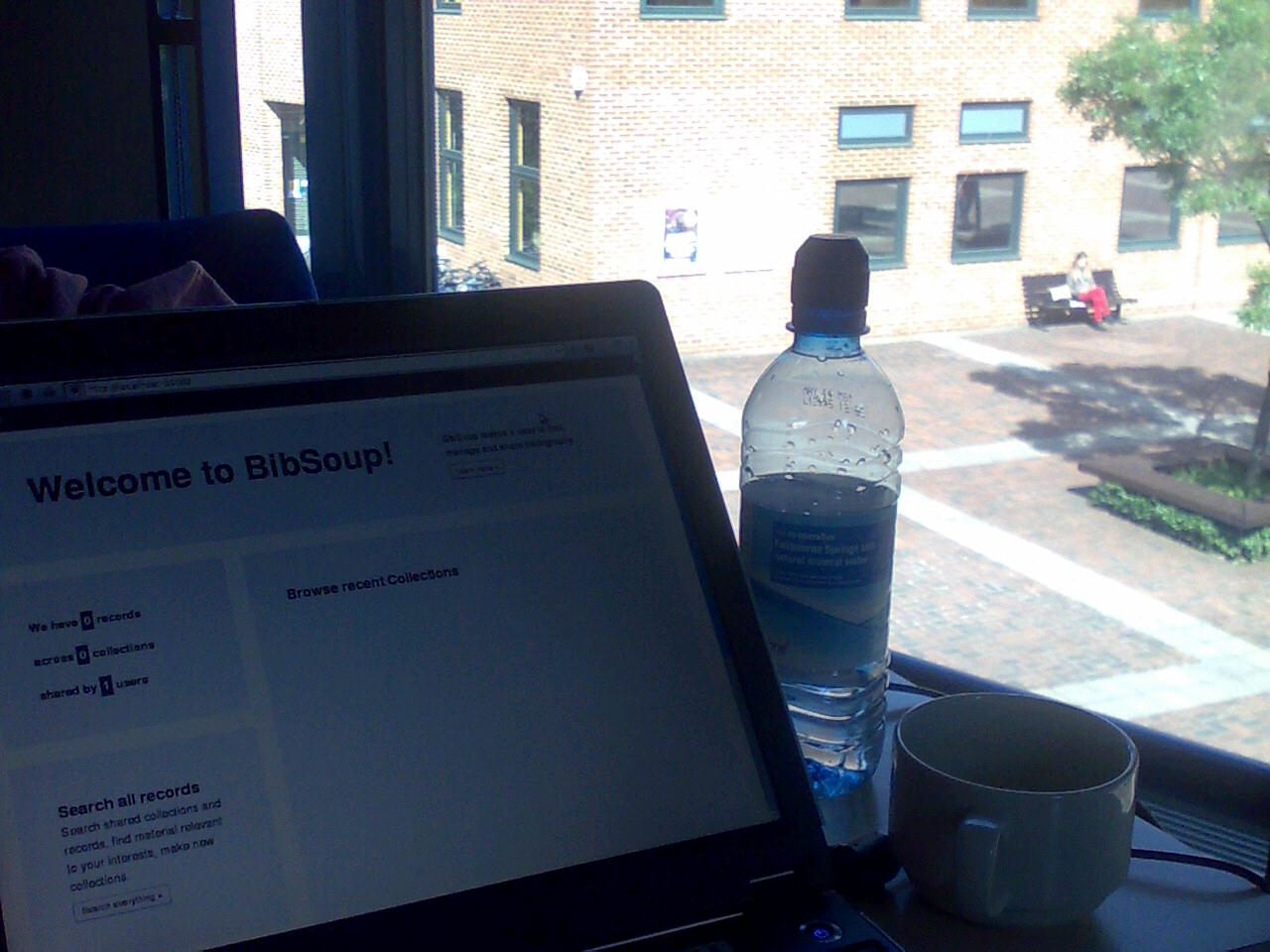
This is my monthly summary of my Debian related activities. If you re among the people who
made a donation to support my work (384.14 , thanks everybody!), then you can learn how I spent your money. Otherwise it s just an interesting status update on my various projects.

Dpkg and multiarch
The month started with a
decision of the technical committee which allowed me to proceed with an upload of a multiarch dpkg even if Guillem had not yet finished his review (and related changes). Given this decision, Guillem made
the experimental upload himself.
I
announced the availability of this test version and invited people to test it. This lead to
new discussions on debian-devel.
We learned in those discussions that Guillem
changed his mind about the possibility of sharing (identical) files between multiple
Multi-Arch: same packages, and that he dropped that feature. But if this point of the multiarch design had been reverted, it would mean that we had to update again all library packages which had already been updated for multi-arch. The discussions mostly stalled at this point with a final note of Guillem
explaining that there was a tension between convenience and doing the right things every time that we discuss far-reaching changes.
After a few weeks (and a
helpful summary from Russ Allbery), Guillem
said that he remained unconvinced but that he put back the feature. He also
announced that he s close to having completed the work and that he would push the remaining parts of the multiarch branch to master this week (with the 1.16.2 upload planned next week).
That s it for the summary. Obviously I participated in the discussions but I didn t do much besides this I have a mandate to upload a multiarch dpkg to sid but I did not want to make use of it while those discussions remained pretty unconclusive. Also Guillem made it pretty clear that the multiarch implementation was
buggy , not right and not finished and that he had reworked code fixing at least some of the issues since he never shared that work in progress, I also had no way to help even just by reviewing what he s doing.
We also got a few multiarch bug reports, but I couldn t care to get them fixed since Guillem clearly held a lock on the codebase having done many private changes it s not quite like this that I expect to collaborate on a free software project but life is full of surprises!
I ll be relieved once this story is over. In the mean time, I have added one new thing on my TODO list since I made a
proposal to handle bin-nmu changelogs and it s something that could also fix
#440094.
Misc dpkg stuff
After a discussion with Guillem, we agreed that copyright notices should only appear in the sources and not in manual pages or
--version output, both of which are translated and cause useless work to translators when updated. Guillem already had some code to do it for
--version strings, and I took care of the
changes for the manual pages.
I merged some minor documentation updates, fixed a bug with a missing manpage. Later I
discovered that some recent changes lead to the loss of all the translated manual pages. I suggested an improvement to
dh_installman to fix this (and even prepared a
patch). In the end, Guillem opted for
another way of installing translated manual pages.
Triggered by a
discussion on debian-devel, I added a new entry to my TODO list: implementing
dpkg-maintscript-helper rm_conffile_if_owner to deal with the case where a conffile is taken over by another package which might (or might not) be installed.
Misc packaging
At the start of the month, I packaged quilt 0.51. The number of Debian specific patches is slowly getting down. With version 0.51, we dropped 5 patches and introduced a new one. Later in the month I submitted 4 supplementary patches upstream which have been accepted for version 0.60.
This new version (just released, I will package it soon) is an important milestone since it s the first version without any C code (Debian had this for a long time but we were carrying an intrusive patch for this). Upstream developer Jean Delvare worked on this and based his work on our patch, but he went further to make it much more efficient.
Besides quilt, I also uploaded dh-linktree 0.2 (minor doc update), sql-ledger 2.8.36 (new upstream version), logidee-tools 1.2.12 (minor fixes) and publican 2.8-2 (to fix release critical bug
#660795).
Debian Consultants
The Debian Project Leader is working on federating
Debian Companies. As the owner of
Freexian SARL, I was highly interested in it since Freexian contributes to Debian, offers support for Debian and has a strategic interest in Debian . There s only one problem, you need to have at least 2 Debian developers on staff but I have no employees (it s me only). I tried to argue that I have already worked with multiple Debian developers (as contractors) when projects were too big for me alone (or when I did not have enough time). Alas this argument was not accepted.
Instead, and since our fearless leader is never afraid to propose compromises, he suggested me (and MJ Ray who argued something similar than me) to try to bring life to the
Debian Consultants list which (in his mind) would be more appropriate for one-man companies like mine. I accepted to help animate the list, and on his side, he s going to promote both the Debian Companies and the Debian Consultants lists.
In any case, the list has seen some traffic lately and you re encouraged to join if you re a freelancer offering services around Debian. The most promising thing is that James Bromberger offered to
implement a real database of consultants instead of the
current static page.
Book update
We made quite some progress this month. There s only one chapter left to translate. I thus decided to start with proofreading. I made a
call for volunteers and I submitted one (different) chapter to 5 proofreaders.
The
liberation campaign made a nice leap forwards thanks to good coverage on
barrapunto.com. We have reached 80% while we were only at 72% at the start of the month (thanks to the 113 new supporters!). There s thus less than 5000 EUR to raise before the book gets published under a free license.
Looking at the progression in the past months, this is unlikely to be completed on time for the release of the book in April. It would be nice though so please share the news around you.
Speaking of the book s release, I m slowly preparing it. Translating docbook files is not enough, I must be able to generate HTML, ePub and PDF versions of the book. I m using
Publican for most formats, but for the PDF version Publican is moving away of fop and the replacement (webkit-based) is far from being satisfactory to generate a book ready for print. So I plan to use
dblatex and get Publican to support dblatex as a backend.
I have hired Beno t Guillon, the upstream author of dblatex, to fix some annoying bugs and to improve it to suit my needs for the book (some results are already in the upstream CVS repository). I m also working with a professional book designer to get a nice design.
I have also started to
look for a Python Django developer to build the website that I will use to commercialize the book. The website will have a larger goal than just this though ( helping to fund free software developers ) but in free software it s always good to start with your own case.

Hopefully everything will be ready in April. I m working hard to meet that deadline (you might have noticed that my blog has been relatively quiet in the last month ).
Thanks
See you next month for a new summary of my activities.
No comment Liked this article? Click here. My blog is Flattr-enabled.
 This Clevo laptop is a new machine and like a lot of new machines, not all of its hardware has drivers in the current stable release of debian.
Happily, there is a driver for its rtl8723ae wireless networking device in the later 3.8 Linux kernel versions. So it s just a case of installing the package called kernel-package and following the instructions in it, to make a new linux-image package with the latest drivers in it.
One small thing which tripped me up is that you usually need to write make-kpkg rootcmd fakeroot initrd kernel-image now. I forgot the initrd option at first.
This Clevo laptop is a new machine and like a lot of new machines, not all of its hardware has drivers in the current stable release of debian.
Happily, there is a driver for its rtl8723ae wireless networking device in the later 3.8 Linux kernel versions. So it s just a case of installing the package called kernel-package and following the instructions in it, to make a new linux-image package with the latest drivers in it.
One small thing which tripped me up is that you usually need to write make-kpkg rootcmd fakeroot initrd kernel-image now. I forgot the initrd option at first.


 I m on my way back from
I m on my way back from  Credit Unions are financial co-operatives where a
Credit Unions are financial co-operatives where a  Here s a summary of what happened at this conference. Opening address. Keynote from Nick Hurd MP, @
Here s a summary of what happened at this conference. Opening address. Keynote from Nick Hurd MP, @ Today I was at
Today I was at 
 This is my monthly summary of my Debian related activities. If you re among the people who
This is my monthly summary of my Debian related activities. If you re among the people who  Dpkg and multiarch
The month started with a
Dpkg and multiarch
The month started with a